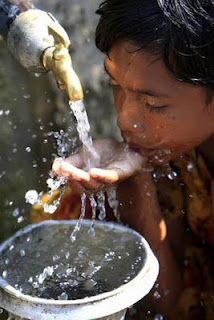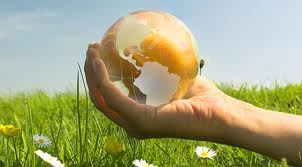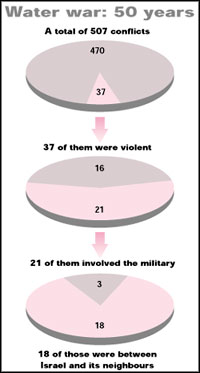The future we do not want
<div class="content"> <div class="field field-type-text field-field-intro"> <p class="rtejustify">World leaders attending Rio+20 did nothing to tackle the interlinked crises of economy and ecology,
<div class="content"> <div class="field field-type-text field-field-intro"> <p class="rtejustify">World leaders attending Rio+20 did nothing to tackle the interlinked crises of economy and ecology,
<table style="width: 886px;"> <tbody bgcolor="#F3F6FA"> <tr> <td style="width: 544px;"> <p><br /> <img src="http://re.indiaenvironmentportal.org.in/files/re/news-ticker/images/eds.jpg"
Under the Millennium Development Goals MDG of the United Nations UN , it has been agreed to halve the number of people without access to safe drinking water by 2015. The Johannesburg Plan of

<p><span style="font-size:14px;"><strong>Arsenic Contamination</strong></span></p> <p><img alt="Arsenic Contamination" src="http://www.indiaenvironmentportal.org.in/files/country/bangladesh/arsenic_hl.jpg" style="width: 530px; height: 300px; border-width: 2px; border-style: solid;" /></p> <p>In the early 1970s, most people living in the countryside relied on surface water -- ponds, or rivers -- to meet their drinking water needs. As a result diseases due to bacteria-contaminated water, such as diarrhoea, dysentery and cholera were extremely widespread. To tackle this problem, and the related problem of drinking water, the government switched to a policy of tapping groundwater. The government began providing villages with tubewells and handpumps, with aid from such organisations as the United Nations Children's Fund (UNICEF) and the World Bank:UNICEF initiated the programme and paid for the first 900,000 tubewells along with its co-sponsor.</p>
www.seedawards.org The Seed Awards are meant to foster the idea that partnerships benefit communities. The bi-ennial awards (five to ten) will be given for innovative proposals. Winners will be
<p>With relations between countries now being shaped by geo-economics rather than geo-politics, an emerging issue is to what extent the United States, China and India, all populous countries and top tier
<p><span style="font-size:12px;"><span style="font-family: verdana,geneva,sans-serif;">Preparations for the Rio+20 United Nations conference on sustainable development have begun, but the first round of

<p>This book released recently by the Wotld Bank contends that most countries are relatively highly dependent on natural capital initially, and the ones that progress most successfully are those that manage their assets for the long term and reinvest in human and social capital as well as in building strong institutions and systems of governance.</p>

The Third World Water Forum took place recently in Japan to explore methods to optimally harness this vital resource, especially in developing countries. But after a week of countless meetings and seminars, the end result was far from satisfactory
<p><em>Redistribution has been kept out of the agenda of the United Nations, and a new global agenda, goals and rules to share responsibility and prosperity can lead to a new world </em></p>

A new approach to sustainability may serve as the ultimate magic wand for solving global environmental problems

A warning about an oceanic problem

No. In the last 100 years, global population tripled, but freshwater use increased sixfold
Electricity is a key ingredient of socio-economic development of the country. Adequate and reliable supply of electricity is an important pre-requisite for attracting both domestic and foreign investment.

The six year long wait for the Galileo trip to Jupiter started paying off scientific returns last fortnight, as the data sent by the probe was analysed and NASA scientists released the first results

Best out of waste? These scientists have taken it further, making a supercomputer out of electronic junk